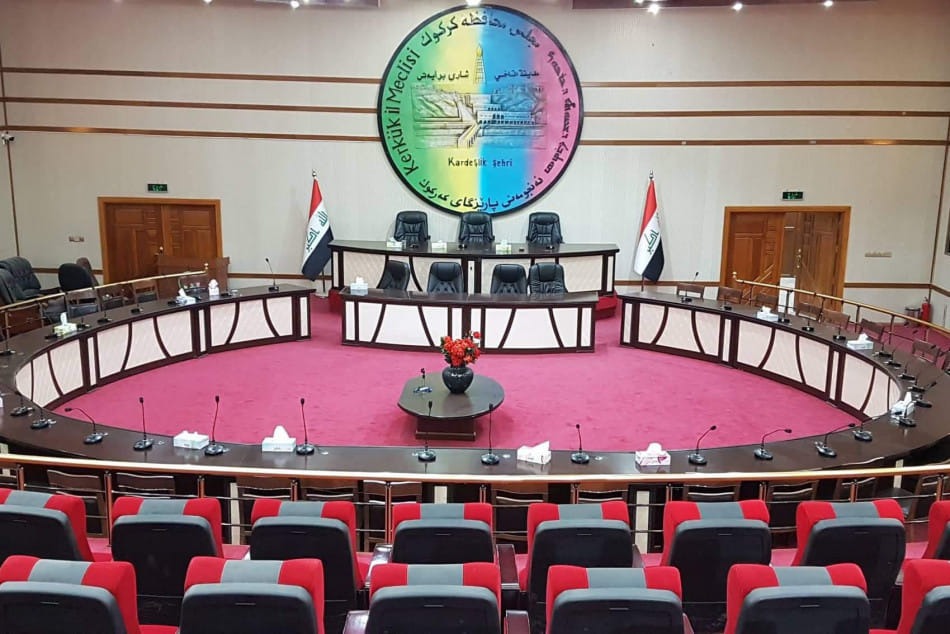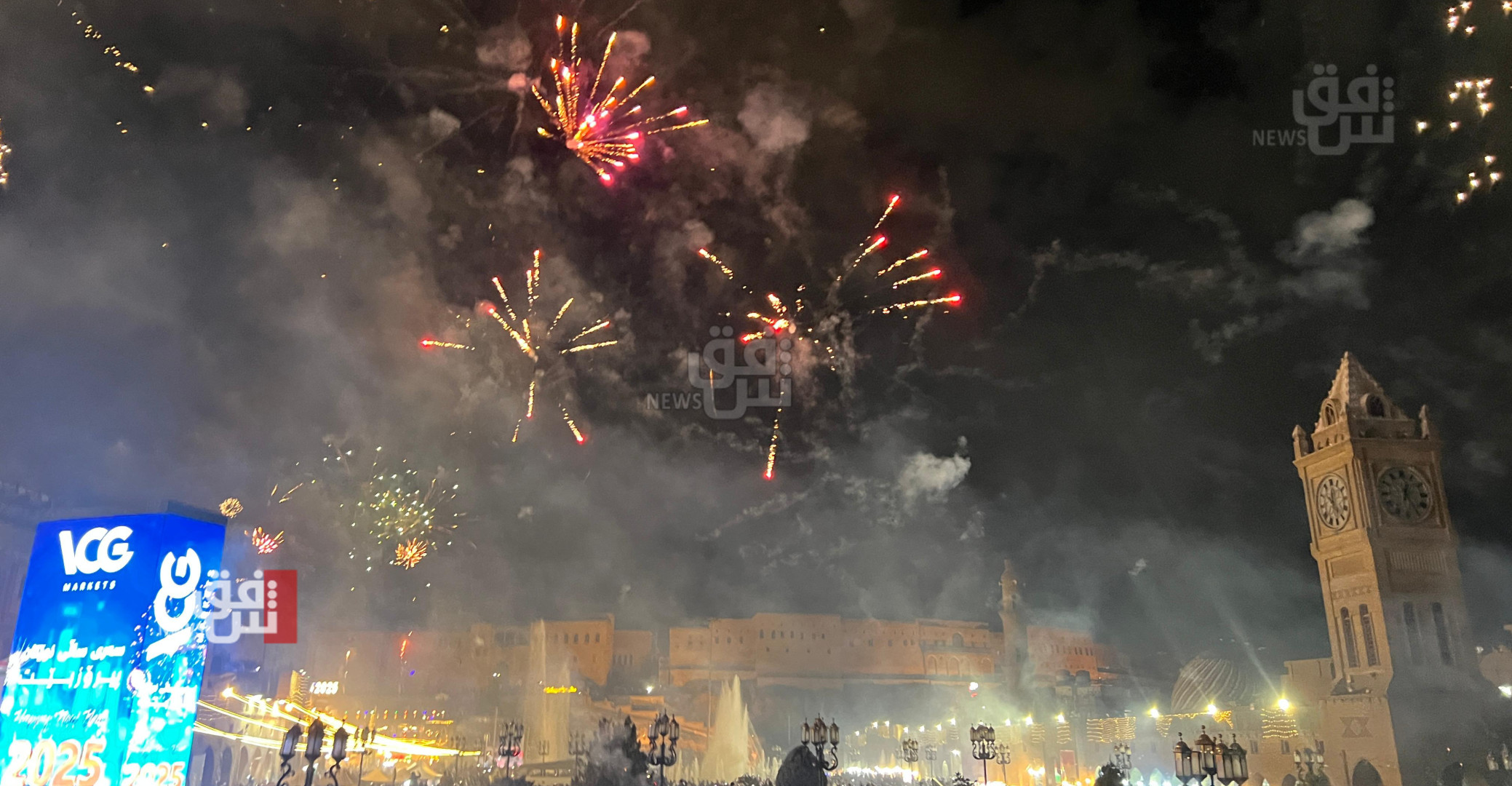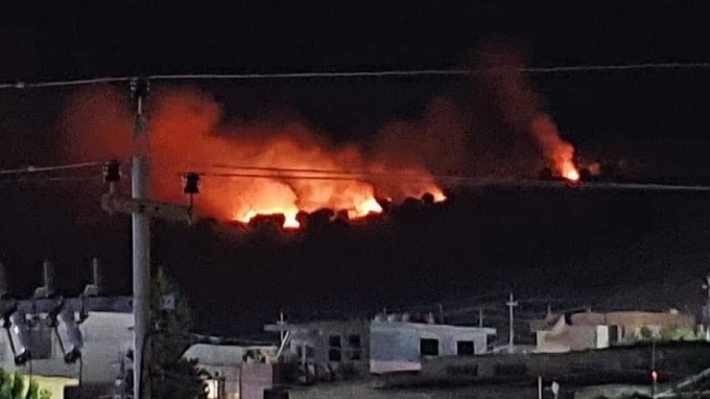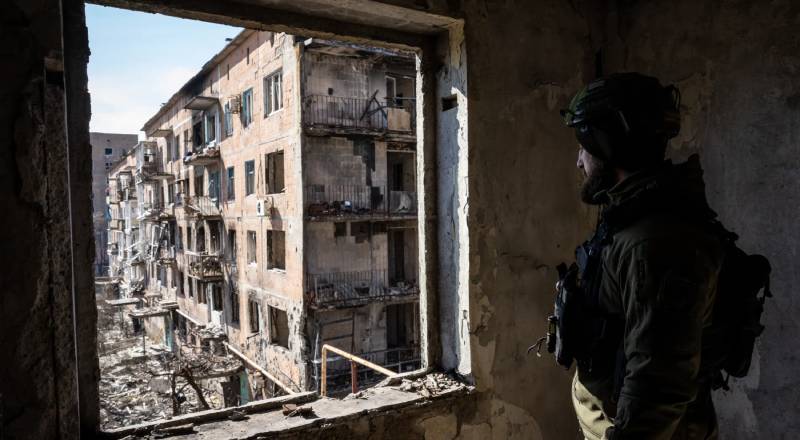Arab-Turkmen alliance aims to control Kirkuk as Kurds rally against the ‘oppressive administration’

Shafaq News / "The political factions vying for power in Kirkuk have revealed a complex web of equations and alliances, aiming to define the forthcoming administration of Kirkuk in the upcoming Provincial Council elections.
During the last Provincial Council elections held in 2005, the Kurdish faction united under a single banner known as 'The Brotherhood List' and clinched an impressive 26 out of the 41 available seats."
Arab-Turkmen alliance aims to oust Kurds
The candidate of the Arab alliance led by Kirkuk Governor Burhan Muzhir al-Assi, a former Provincial Council member, disclosed agreements between Arabs and Turkmen to forge an alliance and maintain the current administration in return for Turkmen gains.
He emphasized, "The government's form and alliances will only become clear after the elections, but the Arab-Turkmen alliance equation in Kirkuk seems most likely."
Premature speculation
The current Governor of Kirkuk, Rakan Said al-Jubouri, considered the Arab-Turkmen alliance to be premature speculation, emphasizing that it is impossible to predict the outcomes of the upcoming elections at this stage.
Al-Jubouri stated, “the current local government has granted all components their political and administrative rights," affirming that electoral opportunities are equal for all components in the upcoming elections to form the Provincial Council.
The Iraqi authorities appointed Rakan Said Ali al-Jubouri as the acting governor of Kirkuk on October 16, 2017, about a month after the dismissal of the former governor of Kirkuk, Najm al-Din Karim.
Al-Jubouri emphasized, "Kirkuk is politically and socially prepared for local elections, and its current conditions are much better than previous election cycles," reiterating, "it is impossible to speculate about the future Kirkuk government without clarity on the official and on-the-ground election results."
The Iraqi Parliament approved the dismissal of Governor Najm al-Din Karim on September 14, 2017, due to his support for the Kurdish referendum in the governorate. Two weeks before Karim's dismissal, the Kirkuk Provincial Council had endorsed a referendum on independence for the Kurdistan Region in Kirkuk, despite opposition from Arab and Turkmen parties.
Illegitimate governor
Mohammed Kamal, the Kurdistan Democratic Party (KDP) official in Kirkuk, stated, “elections are an exercise in change from worse to better, and we seek a local government that solidifies peaceful coexistence and guarantees the rights of all components."
Kamal added, "Kirkuk must be managed to safeguard the interests of all its residents, and we seek to change Kirkuk's administration and appoint a governor who speaks the languages of all components: Arabs, Kurds, and Turkmen, not just one component."
He pointed out that "the current governor is appointed and illegitimate constitutionally, and the administrative conditions of Kirkuk must be changed."
Regarding the chances of the KDP, Kamal said, "Our seats cannot be predicted in advance, and we do not want to anticipate events and facts."
Concerns about "Arab betrayal"
Najat Hussein, a former Kirkuk Council member from the Turkmen component and currently an independent politician, described talk about an Arab-Turkmen alliance as buying "fish in the river," citing a previous betrayal committed by the Arab component against the Turkmen in 2007 when, after jointly withdrawing from the Kirkuk Council, the Arab component, which held 15 seats at that time out of a total of 41, committed an act of betrayal.
"We agreed with the Arabs to withdraw from the Provincial Council, and they offered us incentives, gains, and positions from the Kurds at that time to return to the Provincial Council, and we refused, respecting the political agreement with the Arabs. However, they negotiated with the Kurds under the auspices of the Americans and returned to the Provincial Council, leaving us out," Hussein explained.
Hussein called on the Turkmen component to "not allow the new betrayal and prioritize the interests of the Turkmen above all, not to repeat the betrayal and the mistake of 2007," considering trusting any political component a risk that would sacrifice Turkmen rights again.
Hussein believed that "any local government in Kirkuk or Provincial Council will not be formed without the participation of the three components (Arabs, Kurds, and Turkmen)," justifying the efforts of Arabs and Turkmen to form an alliance as an expansion of political representation and a preemptive move to prevent the recurrence of the previous Kirkuk Council's map, where Arabs and Turkmen represented only one-third.
Changing the authoritarian administration
Zanki Ezzedine Mahmoud, the Public Relations official in the Patriotic Union of Kurdistan (PUK) in Kirkuk, specified a unified Kurdish goal, which is to change the current administration of Kirkuk. He described it as "authoritarian," dominated by tribes and parties, and marginalizing all components, including the Arabs.
He emphasized, "our goal, which includes the PUK and the Communist Party, is to win a Kurdish majority in the Kirkuk Council first. The most important goal is for our list to lead the election results, which is expected in the Kirkuk arena."
Shiite integration
Mohammed Mehdi Al-Bayati, a leader in the "Our Kirkuk" Shiite list in Kirkuk, stated that the election results will determine the shape of alliances, despite field indications suggesting that the Kurds will get seven seats, Arabs five, and Turkmen with all their spectra 3-4, while the "Our Kirkuk" list will secure two seats.
Regarding the Shiite component's stance on Arab-Turkmen alliances, Al-Bayati told Shafaq News Agency, "We are specifically talking about the Turkmen component, we, the Turkmen, will be the pivotal factor in the upcoming alliances for the Kirkuk Council and the formation of the next government."
According to the Independent High Electoral Commission in Iraq (IHEC), 16 coalitions will compete for 15 seats in the Kirkuk Provincial Council. The Kurds will enter these elections with several lists and alliances.





